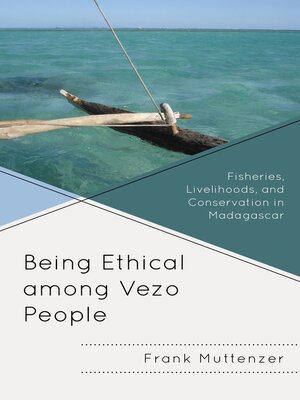Being Ethical among Vezo People
ebook ∣ Fisheries, Livelihoods, and Conservation in Madagascar · Anthropology of Well-Being: Individual, Community, Society
By Frank Muttenzer

Sign up to save your library
With an OverDrive account, you can save your favorite libraries for at-a-glance information about availability. Find out more about OverDrive accounts.
Find this title in Libby, the library reading app by OverDrive.



Search for a digital library with this title
Title found at these libraries:
| Library Name | Distance |
|---|---|
| Loading... |
Being Ethical among Vezo People analyzes environmental change in reef ecosystems of southwest Madagascar and the impacts of global fishery markets on Vezo people's well-being. The ethnography describes fishers' changing perceptions of the physical environment in the context of livelihood and ritual practices and discusses their shared understandings of how Vezo persons should live.
Under new marine protected area regulations, each village is responsible for managing its octopus fishery with a temporal closure. Frank Muttenzer argues that locals' willingness to improve well-being does not commit them to a conservationist ethos. To cope with resource depletion Vezo people migrate to distant resource-rich marine frontiers, target fast growing species, and perform rituals that purport to affect their luck in fishing and marine foraging. But they doubt conservationists' opinion that coral reef ecosystems can be managed for sustainable yield.
The richly documented, elegantly theorized, and fresh ethnographic outlook on the Vezo addresses current issues in marine ecology and conservation, small-scale fisheries, and the semiotics of rural livelihoods and human well-being, particularly its expression in ritual. It will be of strong interest to environmental scientists, Madagascar specialists, and anthropology generalists alike; particularly those who are interested in what the modes of engagement with the environment of foraging peoples can teach us about the human condition at large, and the nature-culture debates in particular.
Under new marine protected area regulations, each village is responsible for managing its octopus fishery with a temporal closure. Frank Muttenzer argues that locals' willingness to improve well-being does not commit them to a conservationist ethos. To cope with resource depletion Vezo people migrate to distant resource-rich marine frontiers, target fast growing species, and perform rituals that purport to affect their luck in fishing and marine foraging. But they doubt conservationists' opinion that coral reef ecosystems can be managed for sustainable yield.
The richly documented, elegantly theorized, and fresh ethnographic outlook on the Vezo addresses current issues in marine ecology and conservation, small-scale fisheries, and the semiotics of rural livelihoods and human well-being, particularly its expression in ritual. It will be of strong interest to environmental scientists, Madagascar specialists, and anthropology generalists alike; particularly those who are interested in what the modes of engagement with the environment of foraging peoples can teach us about the human condition at large, and the nature-culture debates in particular.







